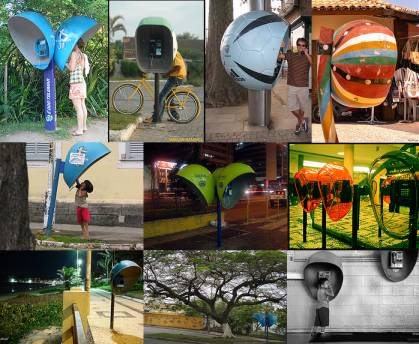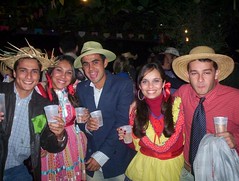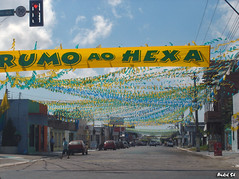O orelhão escangalhado

"Orelhão" is Portuguese for "big ear," but it has a more common everyday meaning. It's the word for the strangely (to an American's eye) shaped public telephone seen throughout Brazil. They're treated creatively all over the country. I've seen examples of them in the shapes of exotic animals at phones in the zoo, shaped like a coconut on the beach, and some just painted in festive colors.
My favorite song from the Seu Jorge show was aquela Pretinha (São Gançalo). It has a great repeated line "o orelhão da minha rua estava escangalhado o meu cartão tava zerado mas você creia se quiser." I didn't recognize the word "escangalhado." I would normally think to use "quebrada" for something that wasn't working.
I found a funny blog entry trying to explain the difference.
Quebrar é quando não tem mais conserto e escangalhar é quando dá pra consertar.
Quebrar is when it can't be fixed and escangalhar is when repair is possible.
That's probably not quite right, but it seems to be used for things that are out of order.


